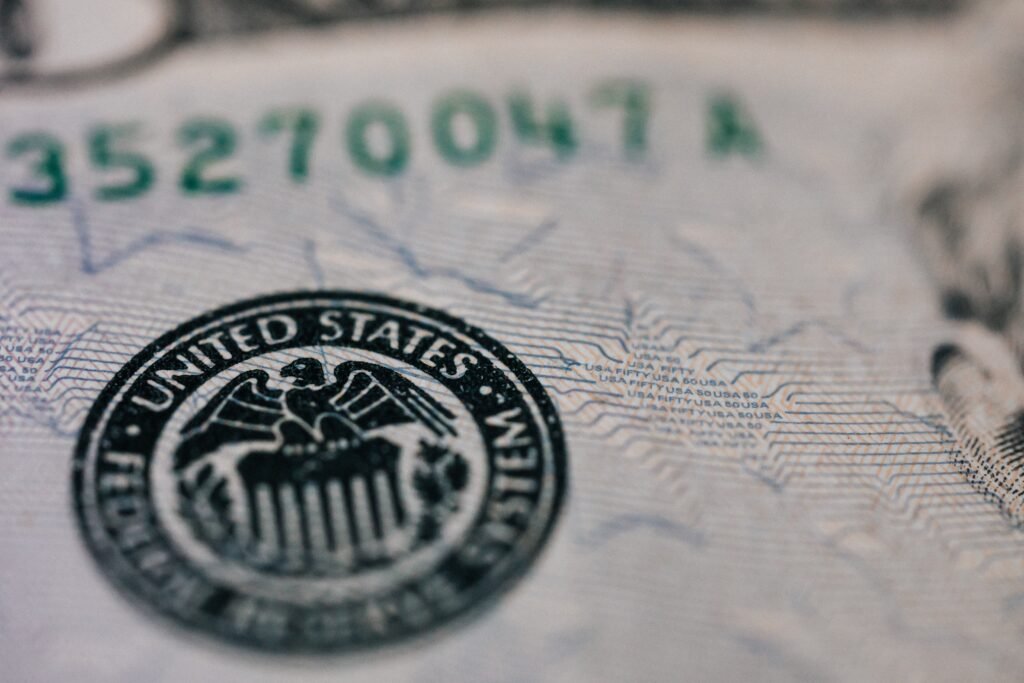Discover the vital role of emergency funds in your budget. Learn why emergency funds are essential for financial security.
Emergency fund meaning
An emergency fund is a designated pool of money set aside for unexpected and unplanned expenses. It serves as a financial safety net to cover unforeseen events or emergencies, such as medical bills, car repairs, unexpected job loss, or any other urgent and necessary expenses that may arise in your life. The primary purpose of an emergency fund is to provide you with financial security and peace of mind, ensuring that you have readily accessible funds to handle unexpected financial challenges without resorting to high-interest debt or depleting your savings meant for other goals.
Table of Contents
In today’s world, where life can be as unpredictable as ever, achieving financial stability is a goal that resonates with everyone. After all, life has a knack for throwing curveballs our way when we least expect them, such as unexpected medical bills, sudden car repairs, or the shock of losing a job out of the blue. In this article, we’re going to dive deep into the significance of having an emergency fund in your budget and explore why it should be an unwavering cornerstone of your financial plan.
1. Understanding Emergency Funds: More Than Just Money
Setting up an emergency fund is not just a stash of money; it’s your shield against life’s unexpected blows. It’s the guardian of your financial well-being, standing ready to catch you when life takes an unexpected turn. It’s important to note that this fund isn’t for planned expenses, such as vacations or buying the latest tech gadgets; it’s your lifeline for the financial turbulence caused by unforeseen events.
2. Why an Emergency Fund is Crucial: Your Financial Lifesaver
2.1 Financial Security: A Blanket of Safety
The primary purpose of setting up an emergency fund is to provide you with financial security. Without it, you might find yourself at the mercy of high-interest credit cards, loans, or depleting your hard-earned savings set aside for other life goals when faced with an emergency. It’s your financial parachute when you need it most.
2.2 Peace of Mind: Worry Less, Live More
Knowing that you have a safety net in place can offer you profound peace of mind. It alleviates stress and anxiety, allowing you to direct your focus towards finding solutions rather than fretting about how to cover sudden expenses.
3. How Much Should You Save? Personalize Your Safety Net

Determining the right amount for your emergency fund can be a bit of a puzzle. While most financial experts recommend saving three to six months’ worth of living expenses, it’s essential to remember that this can vary depending on your unique circumstances. Your emergency fund should be tailored to fit your life and financial situation.
4. Building Your Emergency Fund: Making It a Reality
4.1 Set Clear Goals: Chart Your Course
Begin your journey to financial security by establishing well-defined, achievable objectives for your emergency fund. Determine a monthly savings target and dedicate yourself to it. Having a distinct goal in mind serves as a guiding light, simplifying the tracking of your progress. This clarity not only keeps you on course but also boosts your motivation, making the path to building your emergency fund a smoother and more rewarding experience.
4.2 Automate Savings: Consistency Is Key
Automating your savings ensures that a portion of your income goes directly into your emergency fund each month, making it a consistent and non-negotiable habit. It’s like paying yourself first.
5. Where to Keep Your Emergency Fund: The Safe Harbor
A high-yield savings account provides you with the liquidity you need to access your funds promptly in times of crisis, while also offering the growth potential to make your emergency fund more robust over time. It’s the perfect tool to strike that delicate balance between being prepared for the unexpected and ensuring your money doesn’t lose its value sitting idle.
6. When to Use Your Emergency Fund: For the Storms, Not the Sunshine
Your emergency fund should only be used for genuine emergencies, such as unexpected medical bills, car repairs, or job loss. It’s your financial fire extinguisher; use it sparingly and wisely.
7. Common Misconceptions: For Everyone, Not Just the Elite
Setting up an emergency funds is not a privilege reserved for the wealthy. They are for everyone, regardless of income level. Your financial security matters, no matter how much you earn.
8. Benefits Beyond Financial Security: More Than Dollars and Cents
8.1 Reduced Debt: Escaping the Debt Trap
An emergency fund can be your lifeline, preventing you from drowning in high-interest debt during emergencies. It’s your financial life preserver.
8.2 Better Decision Making: Clarity in Chaos
Having a financial cushion empowers you to make more rational decisions when faced with unexpected challenges. It’s like having a flashlight in the dark.
9. Creating Financial Peace of Mind: Serenity in Uncertainty

Financial peace of mind is akin to a serene oasis amid life’s uncertainty. When you’re aware that you’ve taken the necessary steps to be financially prepared for unforeseen circumstances, a deep sense of calm washes over you. It’s the reassurance that you have a sturdy shield against life’s tempests, a safety net that will catch you if you fall. This peace extends beyond your bank balance; it permeates your entire life. It allows you to navigate challenges with composure, make decisions with confidence, and focus on your well-being and aspirations. In a world where unpredictability is the norm, financial preparedness becomes your steadfast anchor, granting you serenity and control.
10. Emergency Fund vs. Credit Cards: Proactive vs. Reactive
Contrasting the advantages of having an emergency fund with sole reliance on credit cards highlights the pivotal role of proactive financial planning. Having an emergency fund is akin to being the captain of your financial ship, steering it confidently through turbulent waters. On the other hand, relying solely on credit cards is akin to being tossed about by the unpredictable waves of unforeseen expenses, leaving you at the mercy of mounting debt. Proactive planning empowers you to weather financial storms, while reactive approaches may lead to a tumultuous journey.
11. Emergency Fund Success Stories: Real-Life Inspiration
Real life stories of individuals who successfully navigated financial crises thanks to their emergency funds serve as powerful sources of inspiration and motivation. These narratives are a testament to the practicality and effectiveness of having a financial safety net in place. They remind us that ordinary people can triumph over unexpected challenges when armed with foresight and preparation. Such accounts ignite a sense of hope, demonstrating that with diligent planning and commitment, we can all build the resilience needed to face life’s financial uncertainties head-on, emerging stronger and more confident on the other side.
12. The Emotional Impact of Financial Preparedness: Beyond the Bank Balance
Achieving financial preparedness goes beyond mere numbers; it profoundly affects your emotional well-being. Imagine the peace of mind that comes from knowing you have a safety net to fall back on, even in the midst of life’s chaos. This emotional security can alleviate stress and anxiety, allowing you to focus on what truly matters in your life. It’s about feeling empowered and in control, irrespective of the unpredictable circumstances that may arise. Financial preparedness provides a profound sense of calm, offering you the emotional resilience to weather any storm. It’s not just about money; it’s about a better quality of life and the freedom to face the future with confidence.
13. Challenges in Establishing an Emergency Fund: Overcoming Hurdles
Recognizing the prevalent hurdles individuals encounter while establishing their emergency fund is a vital step in achieving financial resilience. These challenges, be they unexpected expenses or competing financial priorities, are like roadblocks on your journey to financial security. However, by understanding and anticipating these obstacles, you can effectively navigate around them, much like using a roadmap to navigate unfamiliar terrain. Our article is your guide, offering insights and practical solutions to tackle these common challenges head-on. With this knowledge, you’ll be better prepared to stay committed to building your emergency fund, ensuring that your financial safety net remains strong, no matter what twists and turns life may bring.
14. Tips for Staying Committed: The Path to Financial Resilience
Consistency is the bedrock of successfully managing your emergency fund. It ensures that your financial safety net remains intact and effective when you need it most. In this article, we’re dedicated to offering you invaluable insights and actionable strategies to help you maintain your commitment to your emergency fund. Think of it as having a trusted financial coach by your side, guiding you through the ups and downs of budgeting, savings, and unexpected expenses. With the right techniques and a steadfast mindset, you can confidently navigate any financial storm and continue building your financial security.
15. Conclusion: Your Financial Safety Net: Your Shield, Your Confidence
In conclusion, an emergency fund is not a luxury; it’s a necessity. It offers you more than just financial security; it provides peace of mind, the ability to face life’s surprises with confidence, and the assurance that you can weather any storm. So, don’t wait. Start building your emergency fund today, and secure your financial future. It’s your key to financial resilience.
How quickly should I aim to build my emergency fund?
Your goal should be to build your emergency fund over time, ideally within six months to a year. Start with a small amount and gradually increase it as your financial situation improves.
Can I invest my emergency fund?
It’s generally not advisable to invest your emergency fund in the stock market or other high-risk investments. The primary purpose of this fund is to provide liquidity in emergencies, so a high-yield savings account is a safer option.
What if I can’t save three to six months’ worth of expenses?
Even if you can’t reach that goal immediately, having some emergency savings is better than none. Start with a smaller goal and work your way up over time.
Should I include my emergency fund in my budget?
Yes, your emergency fund should be considered a part of your budget. Treat it as a non-negotiable expense and allocate a portion of your income to it regularly.
Can I use my emergency fund for non-financial emergencies?
While it’s best to use your emergency fund for genuine financial emergencies, ultimately, it’s your money, and you can use it as you see fit. However, remember that depleting it for non-essential expenses may leave you vulnerable in real emergencies.
Incorporating an emergency fund into your budget is a wise financial decision. It’s not just about money; it’s about having peace of mind and the ability to navigate life’s unexpected challenges without the stress of financial turmoil. Start building your emergency fund today, and secure your financial future. It’s not just a fund; it’s your lifeline.
Free Invoice Template for Excel: Streamline Your Billing Process
In the fast-paced world of business, efficiency and accuracy in billing are paramount. At SaveSaga,…
20+ Budget-Friendly Gift Ideas for Every Special Occasion
Unlock the secret to heartfelt gifting without breaking the bank. Explore our guide for creative,…
30+ Ways to Make $1000 Fast in 2024: Legal, Legit, and Lucrative
#MAKE MONEY Make $1000 fast Are you struggling to make ends meet? Do you need…
How to Create a Budget as a College Student, 13 best ways
In the whirlwind of college life, Budget as a College Students can be a daunting…
8 Proactive Strategies On How To Protect From Inflation For Financial Stability
Explore proactive budgeting and investment strategies on how to protect from inflation and to maintain…
Decoding Fixed And Variable Expenses: Achieving Financial Stability Through Smart Budgeting
Master the art of financial stability with our guide on budgeting. Explore the balance between…






Pingback: 10 Brilliant Money-Saving Tips: How to Save Money Monthly
Pingback: Dave Ramsey's Envelope System
Pingback: Mastering Your Money: The Ultimate Guide to Budgeting Success